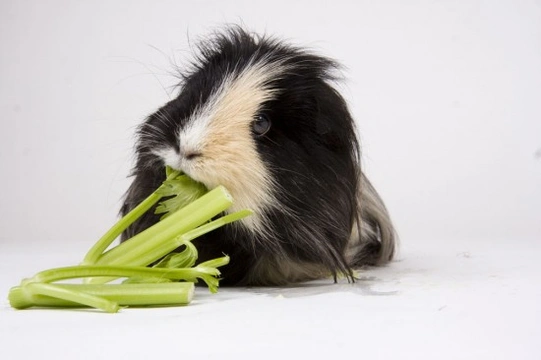
Best Food for Guinea Pigs: Complete Care Guide
Guinea pigs are delightful, energetic pets that can live up to ten years when given the proper care and nutrition. Ensuring they receive the right nutrients, vitamins, and fibre is vital to their wellbeing and longevity. Many assume muesli-style feeds provide balanced nutrition, but guinea pigs often become picky eaters and discard parts of these mixes, resulting in an unbalanced diet that can cause nutritional deficiencies.
Three Essential Dietary Needs for Healthy Guinea Pigs
- Provide unlimited access to high-quality grass hay such as timothy hay, which is critical for maintaining healthy teeth and supporting digestion. Hay should be available both day and night, allowing constant chewing to help wear down their constantly growing teeth.
- Offer daily fresh leafy greens—about a teacup per guinea pig—rich in vitamins, especially Vitamin C, which guinea pigs can't synthesise themselves.
- Feed a controlled amount of high-fibre, plain guinea pig pellets. Avoid muesli mixes with seeds or dried fruit, as these can lead to selective feeding and nutritional gaps. Always follow feeding guidelines provided on packaging.
Avoid Feeding Muesli-Type Mixes
Muesli feeds are often left partially uneaten because guinea pigs tend to pick out only the tastier sweet bits, ignoring healthy fibre-rich components. This selective eating can lead to dental problems and digestive issues caused by insufficient fibre intake. Choosing pellets over muesli helps provide consistent nutrition.
Suitable Greens to Include in Your Guinea Pig's Diet
Introduce a variety of fresh vegetables suitable for guinea pigs daily. Some popular and safe options include:
- Beetroot (avoid leaves and stalks)
- Broccoli
- Cabbage (red and green)
- Carrots
- Cauliflower
- Corn-on-the-cob
- Cucumber
- Kale
- Peas
- Spinach
- Sprout tops
- Sugar snaps
- Swede
Fruit as Occasional Treats
Fruits are a lovely occasional treat but should be given sparingly due to their high sugar content. Safe fruits for treats include:
- Apples
- Bananas
- Grapefruit
- Seedless grapes
- Strawberries
- Gooseberries
- Kiwi fruit
- Mango
- Melons
- Oranges
- Pears
- Tangerines
Introducing New Foods Safely
Always introduce any new food gradually over the course of a week to avoid upsetting your guinea pig’s delicate digestive system. Monitor droppings to ensure the new food agrees with them.
The Importance of Vitamin C
Guinea pigs, like humans, cannot produce Vitamin C internally and must obtain it from their diet. Good natural sources include salad peppers, tomatoes, spinach, asparagus, broccoli, and leafy greens like parsley and kale. Consider supplementing with Vitamin C drops added to their water if fresh sources are insufficient. Excess Vitamin C is harmless, as any surplus is excreted in urine.
Choosing Quality Commercial Guinea Pig Pellets
Opt for fresh, high-quality guinea pig pellets rich in Vitamin C. Check sell-by dates carefully, as nutrients degrade with age. Stored pellets lose much of their Vitamin C content, reducing their benefit.
The Best Treats
Choose natural treats sold in pet shops that support dental health and digestion, avoiding sugary or honey-containing treats that may cause diabetes or tooth issues.
Why Do Guinea Pigs Eat Their Droppings?
This is perfectly normal and beneficial. Guinea pigs produce hard droppings and softer caecotrophs, the latter being nutrient- and fibre-rich. Eating these helps maximise nutrient absorption.
Plants and Foods to Avoid
Ensure any outdoor space or run is free from toxic plants such as bluebells, daffodils, foxgloves, ragwort, yew, and others. Never feed guinea pigs avocado, oats, seeds, or foods high in fat and carbohydrates.
Providing Fresh Water
Fresh, clean water should always be available. Metal-spouted water bottles work well once guinea pigs are familiar with them; bottles should be cleaned and refilled daily. Guinea pigs typically drink between 100 to 200 ml per kg of bodyweight daily. Changes in drinking habits should prompt a vet check.
Conclusion
Guinea pigs are charming companions who thrive on a balanced diet rich in fibre and Vitamin C, constant access to quality hay, and regular exercise. Keeping them with a same-sex companion prevents loneliness and promotes happiness. Following the feeding guidelines and dietary recommendations in this guide will help your guinea pigs live a long, healthy, and joyful life.



